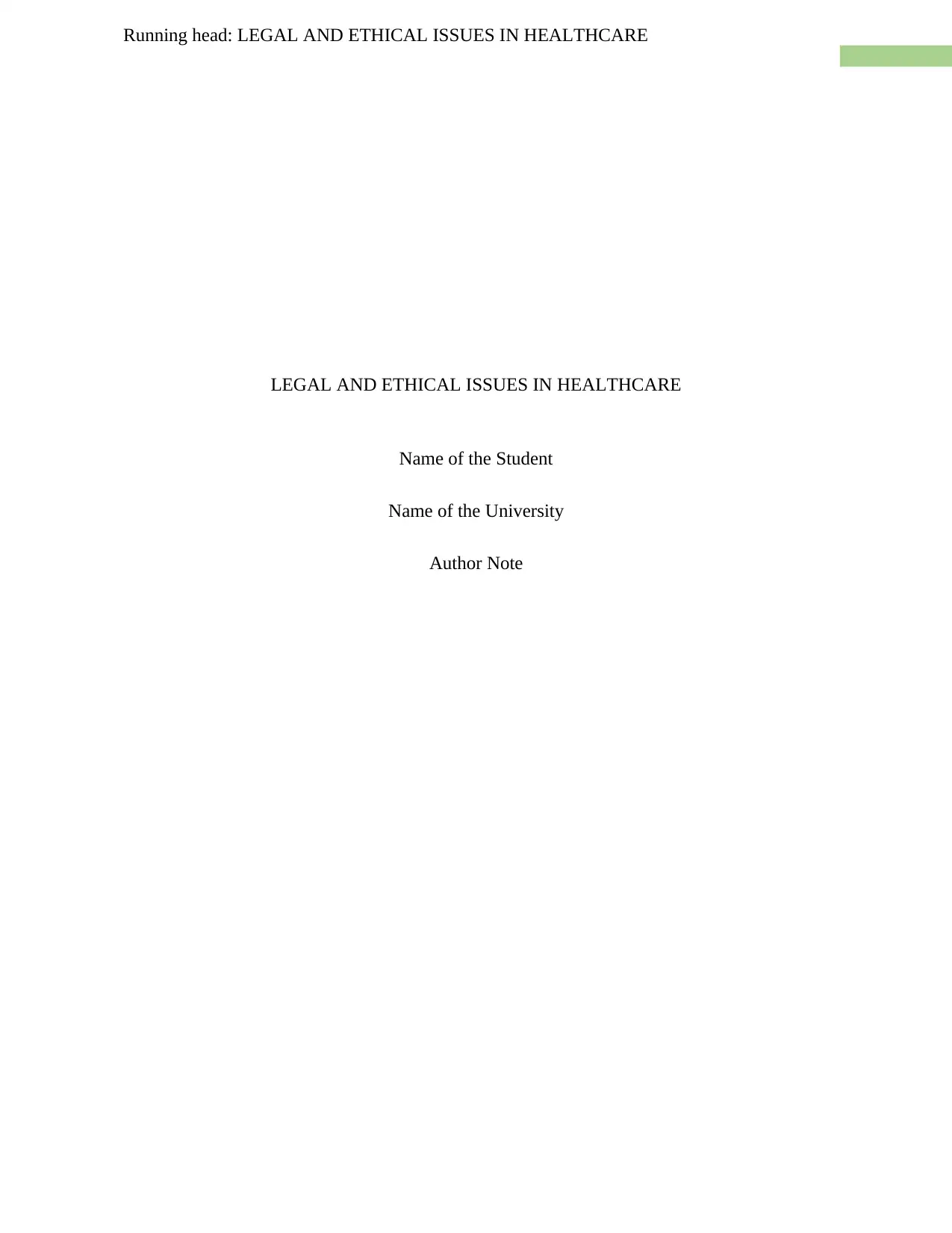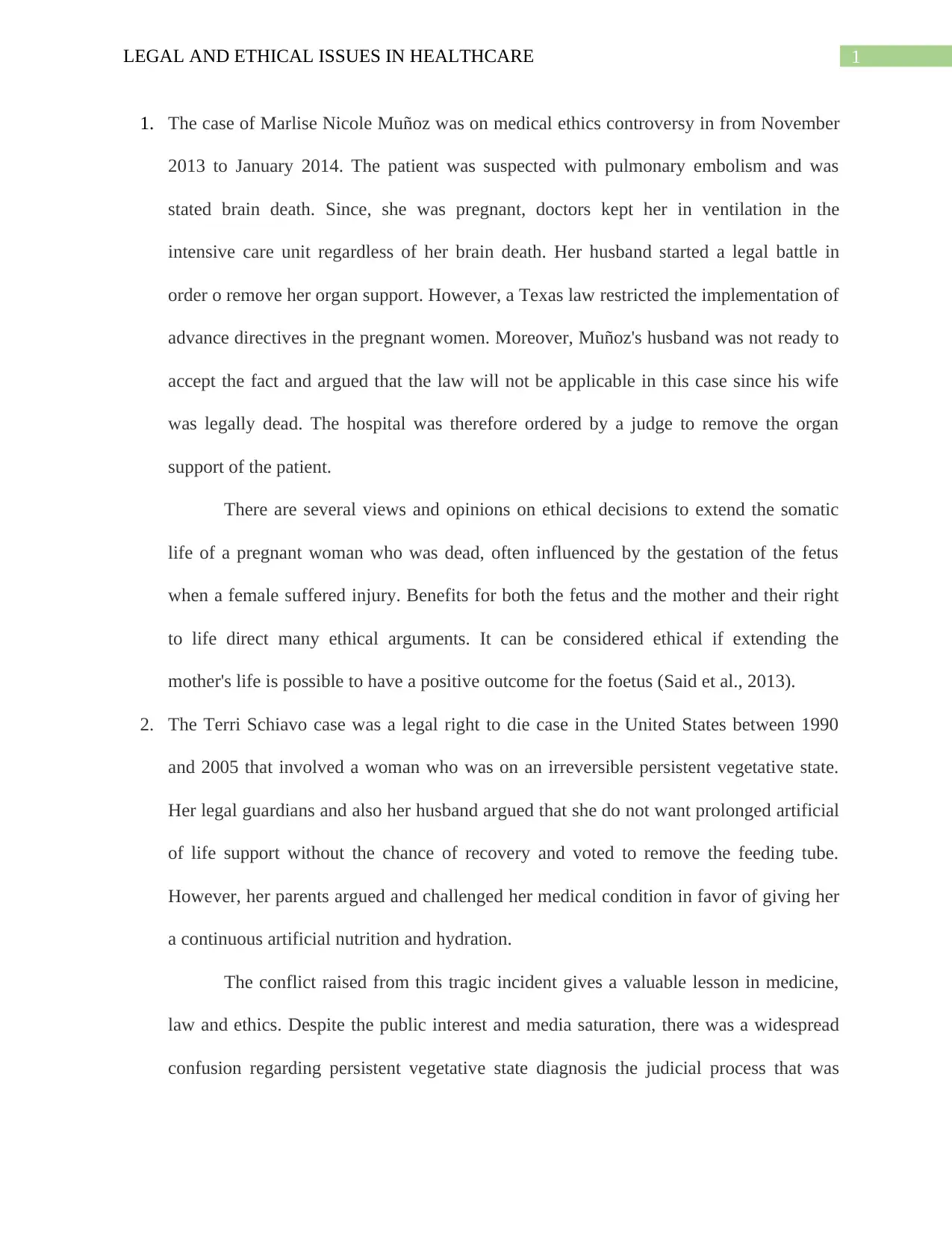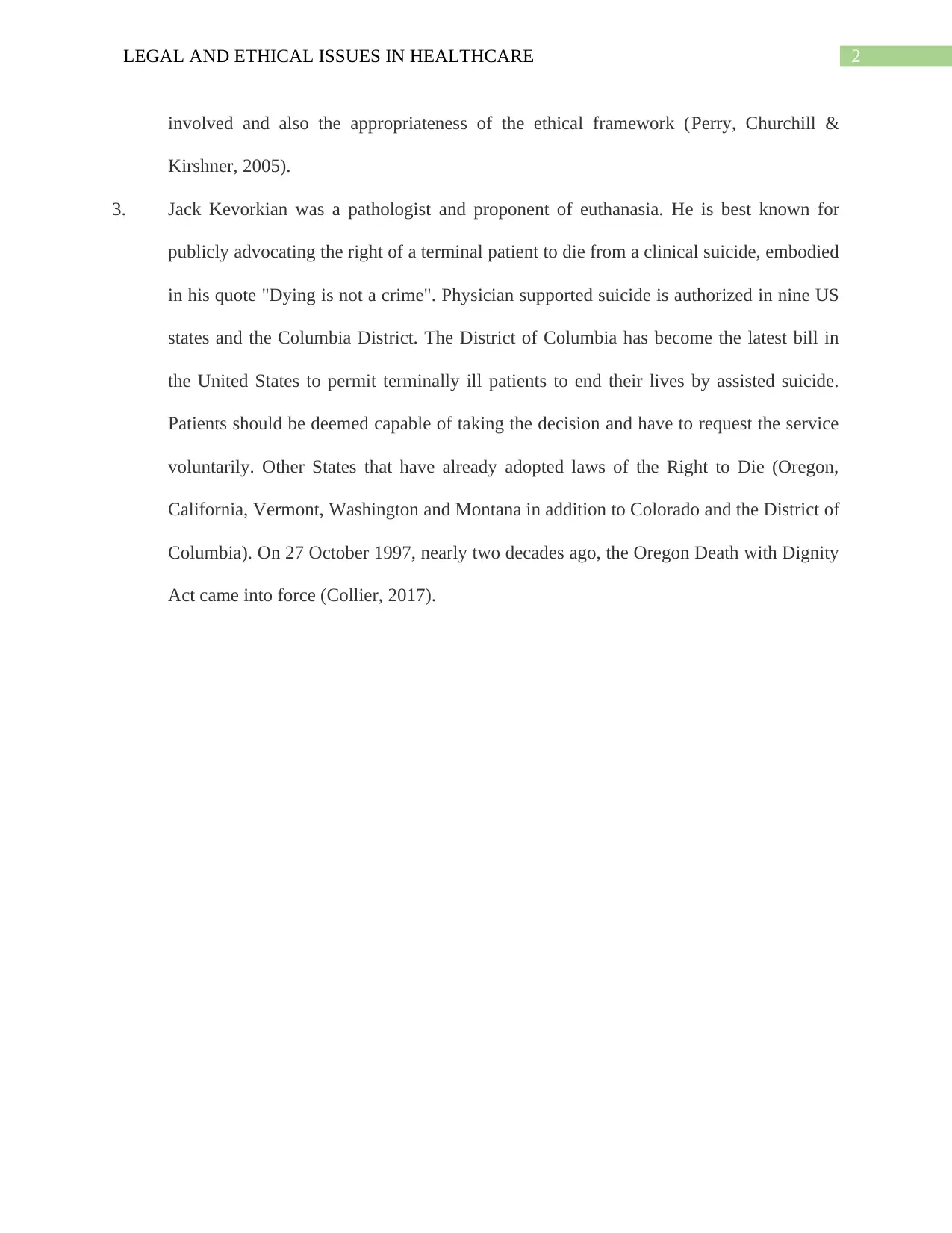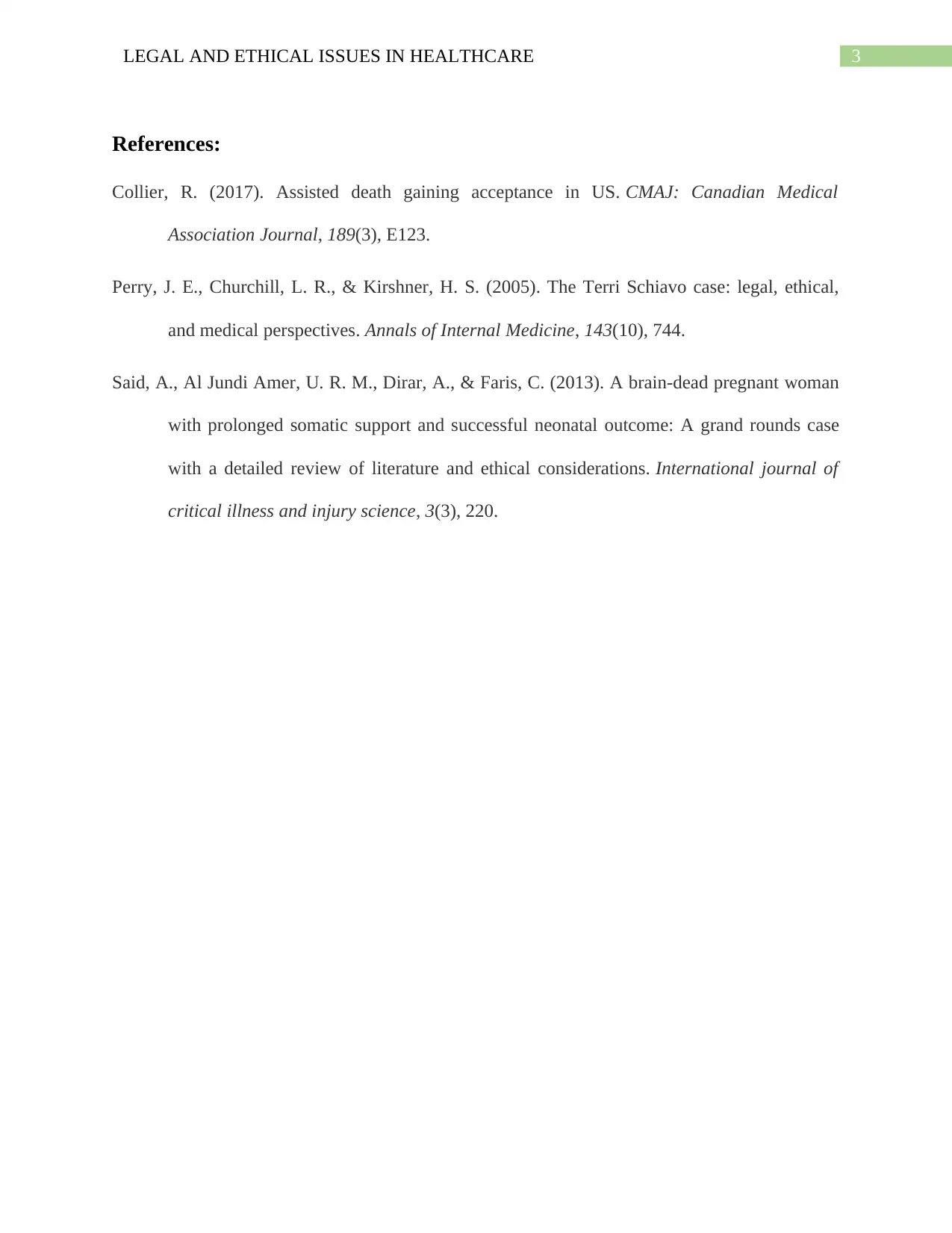Legal and Ethical Issues in Healthcare: Landmark Cases and Debates
VerifiedAdded on 2022/10/09
|4
|706
|17
Essay
AI Summary
This essay delves into critical legal and ethical issues within healthcare, focusing on landmark cases that highlight complex moral and legal dilemmas. The analysis begins with the case of Marlise Muñoz, a pregnant woman declared brain-dead, sparking controversy over the application of Texas law and the ethical considerations of extending somatic life. The essay then examines the Terri Schiavo case, a pivotal legal battle concerning the right to die and the challenges of persistent vegetative state diagnoses. Furthermore, the paper explores the controversial figure of Jack Kevorkian and the ongoing debate surrounding physician-assisted suicide, referencing the Oregon Death with Dignity Act and other state laws. The essay emphasizes the ethical considerations of patient autonomy, end-of-life care, and the role of legal frameworks in navigating these sensitive issues. The paper incorporates references to support the arguments made and provides a comprehensive overview of the key ethical and legal challenges in modern healthcare.
1 out of 4










![[object Object]](/_next/static/media/star-bottom.7253800d.svg)